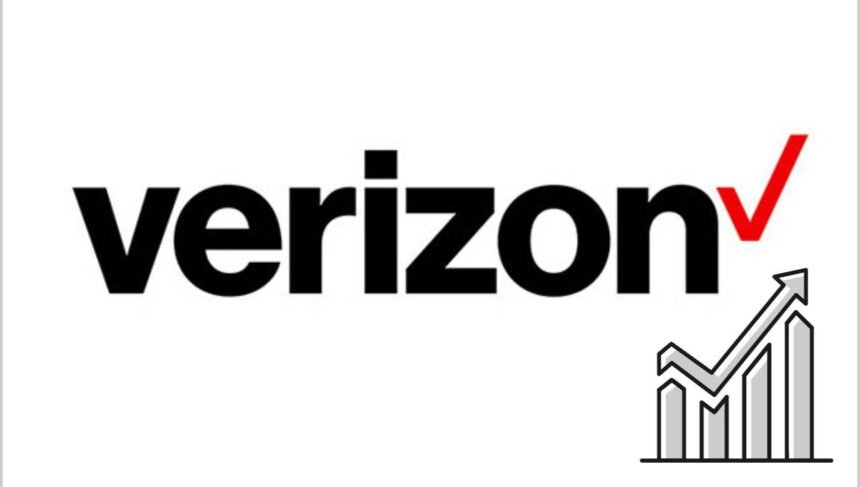The stock market has seen incredible gains in 2023, but those returns have largely been concentrated in a handful of big tech stocks. While the major indexes hover near all-time highs, plenty of strong, profitable companies have been left behind.
One such opportunity is Verizon Communications (NYSE: VZ), the large telecommunications provider.
Why Verizon Stock Have Lagged
Verizon stock have languished over the past several years, and for good reason. The company invests billions of dollars into telecom infrastructure, only to have to reinvest again years later when the next generation of technology emerges. This constant need for capital expenditure weighs on earnings and cash flows.
But this cycle of investment and reinvestment has led to Verizon shares trading at just 7.6 times trailing earnings. With a dividend yield of 7.1%, this is an incredibly cheap valuation for a company of Verizon’s size and market position.
Signs of Optimism Despite Lagging Share Price
While Verizon stock have stagnated, the business fundamentals remain strong. The company retains a leading position in the competitive wireless market, and its 5G network rollout continues, albeit at a slowing pace.
Importantly, as Verizon’s 5G investments peak, capital expenditures are declining while free cash flow rises. In the most recent quarter, Verizon spent $5.4 billion on capex, down from over $6 billion in the prior year period. At the same time, free cash flow jumped to $9.9 billion.
This transition from network investment mode to cash harvesting mode is a very positive development for Verizon. With less cash tied up in 5G, more will be available for dividends, debt repayment, and opportunistic investments.
Growth Opportunities On the Horizon
While Verizon’s core wireless subscription business sees modest growth, there are some emerging opportunities.
Verizon is expanding its 5G home internet service across the country. As this fixed wireless access ramps up, it will provide broadband speeds to millions of potential customers without Verizon needing to build fiber lines. With faster speeds than cable, Verizon can win market share in home internet.
Verizon is also bundling wireless plans with streaming services like Disney+ and Discovery+. This helps attract wireless subscribers and reduces churn by adding value to the wireless subscription. As Verizon builds out these partnership opportunities, they will incrementally grow revenue per user.
The Bottom Line on Verizon Stock
With a cheap valuation, improving cash flows, a big dividend, and some growth opportunities, Verizon stock looks like a generational buying opportunity. For long-term investors, now is the time to pick up shares of this telecom leader while they remain out of favor.
Verizon faces risks, like any company. An economic downturn could pressure subscriber growth and increase costs for financing its remaining 5G investments. Competition remains fierce in wireless. And entering new business lines like home internet and streaming comes with uncertainty.
However, with the direction of capital expenditures and cash flows improving, Verizon has arguably cleared its biggest headwind. And you can pick up shares of this quality company for just 10x free cash flow and a 7% dividend yield. For investors with a long horizon, that presents a phenomenal bargain in Verizon stock.
Frequently Ask Question
What is Verizon’s current dividend yield?
Verizon’s dividend yield is currently around 7.1%. At its current quarterly dividend rate of $0.64 per share, the annual yield based on the recent stock price is approximately 7.1%.
How much cash does Verizon generate?
In the most recent quarter, Verizon generated $9.9 billion in free cash flow. This was up significantly from $5.9 billion in the prior year period, as capital spending has declined.
What is Verizon’s current PE ratio?
Verizon shares currently trade at a PE ratio of around 7.6 times trailing earnings. This is an extremely low valuation for a company of Verizon’s size and market position. The S&P 500 index trades at a PE of over 20 for comparison.
What options does Verizon have for its excess cash?
With free cash flow rising as capex spending decelerates, Verizon has a few options for its excess cash. It can reinvest in growth initiatives like 5G home internet, pay down debt, repurchase stock, or raise the dividend. This flexibility with its cash flows is a strength for Verizon.
What are the biggest risks for Verizon stock?
Some of the biggest risks Verizon faces are an economic downturn pressuring consumer spending, intense competition in wireless and home internet, high costs of further 5G rollout, and uncertainty in new business initiatives. However, at current valuations, much of this risk appears priced in.





